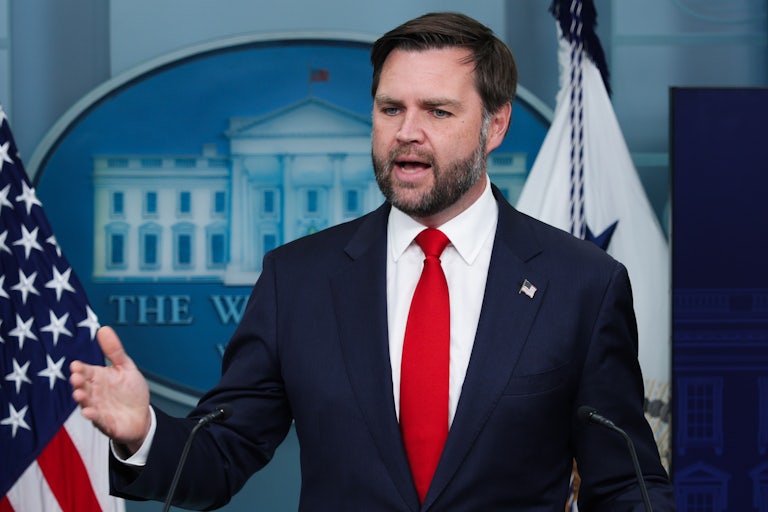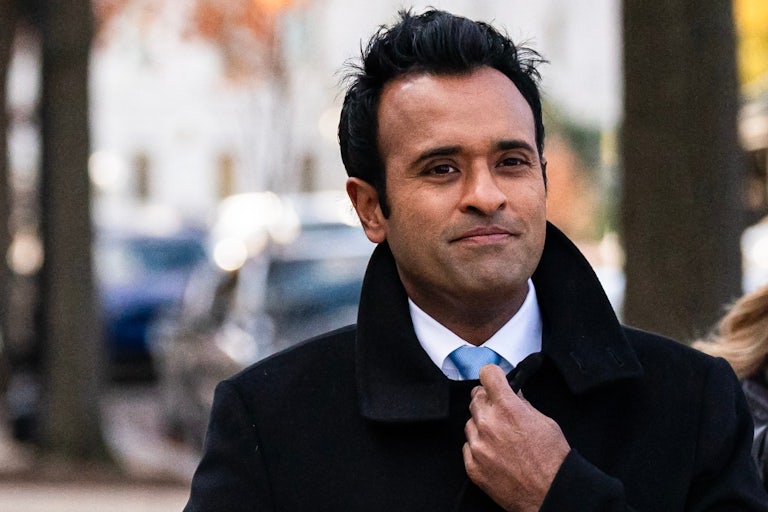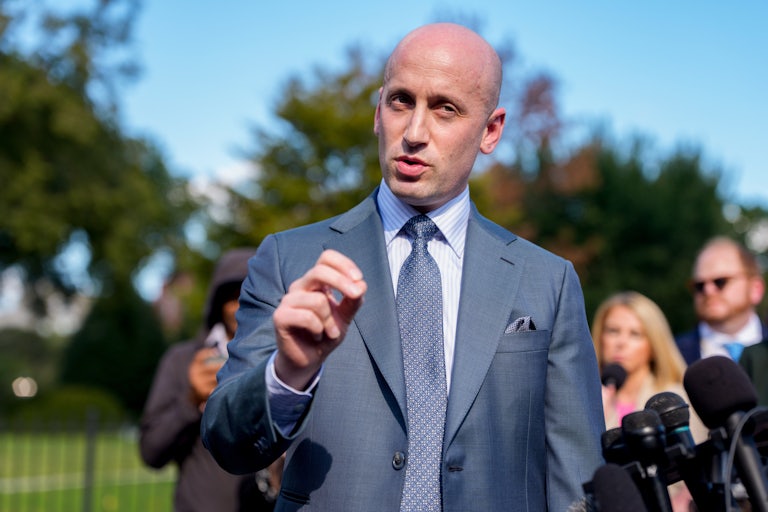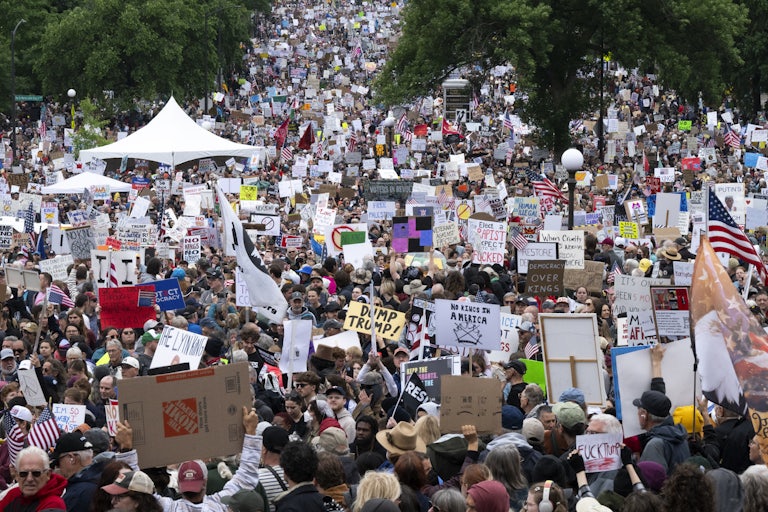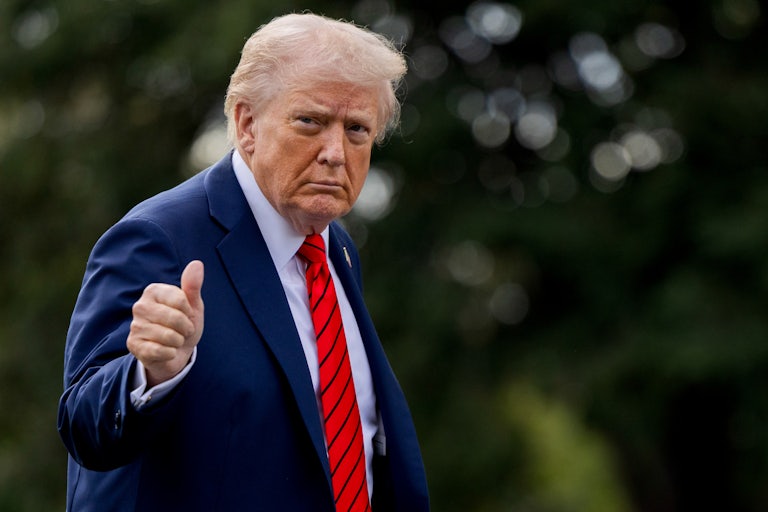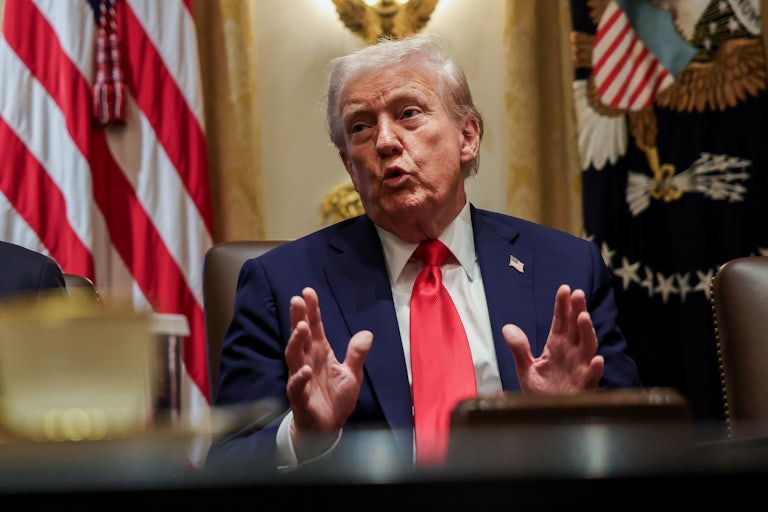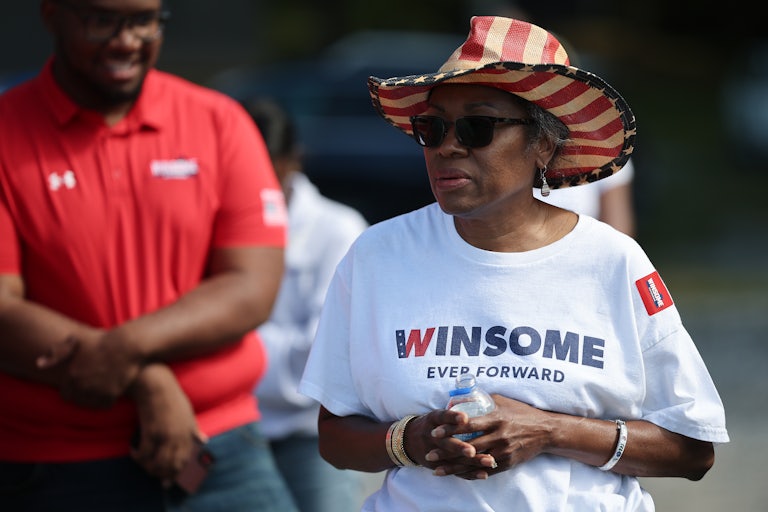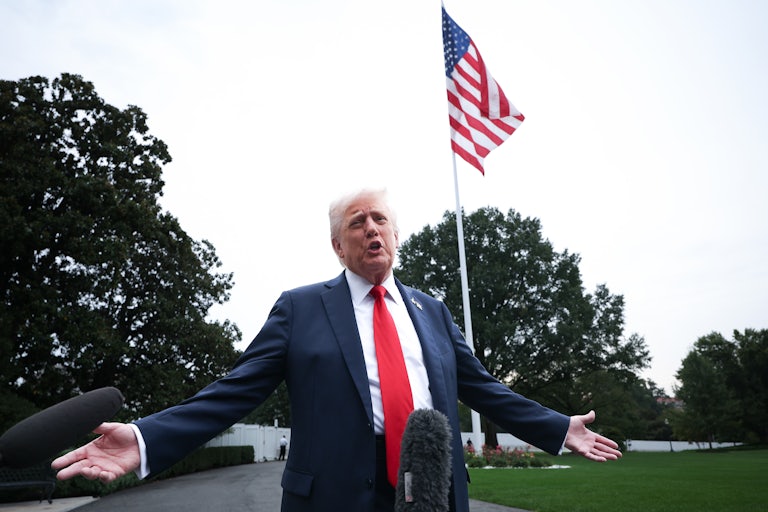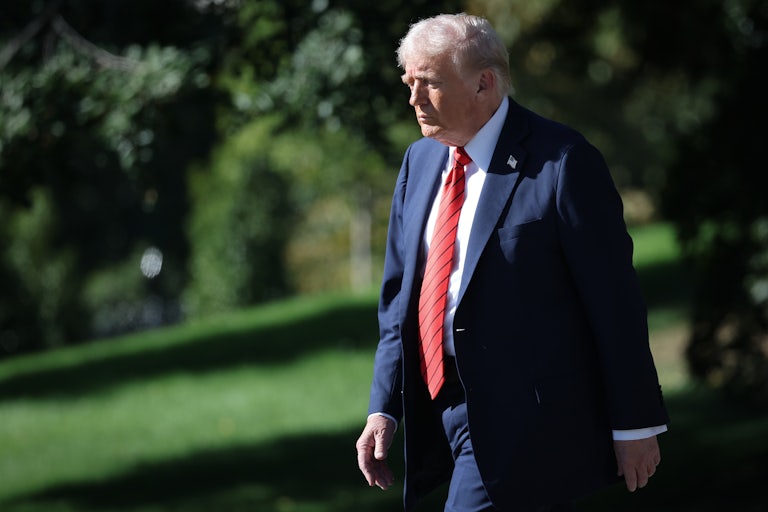JD Vance Freaks Out After Defense of Tom Homan Bribe Is Cut Off on Air
Vance was cut off on live television while trying to fend off allegations that Tom Homan accepted a $50,000 cash bribe.
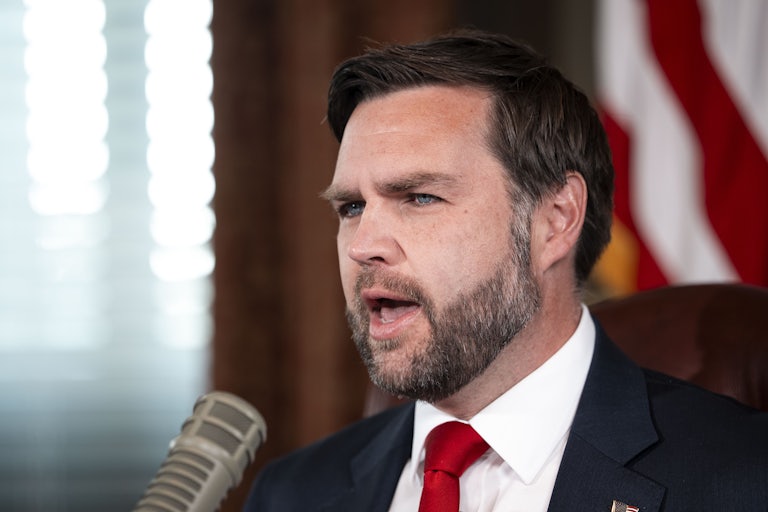
The Trump administration is flailing to protect its border czar, Tom Homan.
Undercover federal agents handed Homan $50,000 via a paper Cava takeout bag in a 2024 sting operation, according to FBI surveillance tapes referenced in federal reports. But the public corruption investigation into Homan had no clear resolution—instead, it ended abruptly when Donald Trump took office and Homan was appointed to government office. By the time the dust settled, it appeared that Homan had never actually returned the taxpayer funds.
Last week, Attorney General Pam Bondi deflected direct questions by two senators during a Judiciary Committee hearing about the missing “buy money,” grousing about the apparent “gotcha.”
But Vice President JD Vance didn’t have a better approach, either. Speaking with ABC News Sunday, Vance zigged and zagged on the topic until the network cut him off for refusing to answer the question.
“Tom Homan did not take a bribe,” Vance told the network. “It’s a ridiculous smear. And the reason you guys are going after Tom Homan so aggressively is because he’s doing the job of enforcing the law. I think it’s really preposterous.”
Vance went on to complain about the severity of public backlash that Homan has faced while trying to “enforce the country’s immigration laws,” but failed to actually answer host George Stephanopoulos as to whether Homan had accepted the cash or given it back.
“But, wait, you said he didn’t take a bribe,” pressed Stephanopoulos. “But I’m not sure you answered the question. Are you saying that he did not accept the $50,000?”
Vance regurgitated the same answer, to which Stephanopoulos asked again if Homan had accepted or rejected the $50,000. But by that point, Vance had decided the best course of action was to play dumb.
“George, I don’t know what you’re talking about. Did he accept $50,000 for what?” Vance said.
“He was recorded on an audiotape in September of 2024, an FBI surveillance tape, accepting $50,000 in cash. Did he keep that money?” Stephanopoulos said.
“Accepting $50,000 for doing what, George?” Vance tossed back. “I am not even sure I understand the question. Is it illegal to take a payment for doing services? The FBI has not prosecuted him. I have never seen any evidence that he’s engaged in criminal wrongdoing. Nobody has accused Tom of violating a crime, even the far-left media like yourself.
“So I’m actually not sure what the precise question is. Did he accept $50,000? Honestly, George, I don’t know the answer to that question,” Vance continued. “What I do know is that he didn’t violate a crime.”
After Stephanopoulos asked a third time, Vance began to ramble and rave about how the inquiry into Homan’s alleged impropriety was little more than a “left-wing rabbit hole,” claiming that ABC had misallocated its resources by investigating a public corruption story rather than airing more 24/7 coverage of the government shutdown.
ABC then pulled the plug on Vance, cutting off his blatant hedging—and he did not take it well.
Taking to X shortly after the failed interview, Vance further distorted the reality of the investigation by claiming that ABC wasn’t interested in “peace in the Middle East” or U.S.-China trade relations.
“George S doesn’t care about that. He’s here to focus on the real story: a fake scandal involving Tom Homan,” Vance wrote in a post that received more than 68,000 likes.
How $50,000 in cash got lost in translation is a bit of an anomaly for federal investigations. The Justice Department outlines strict regulations on exactly how federal agents can parcel out “buy money” during sting operations. Those funds are government property, and the DOJ requires clear accounting of how much was withdrawn and how much was returned to government accounts.
Several experts that spoke with The New York Times noted that $50,000 was a significant sum in the scope of public corruption investigations, and would suggest that agents had amassed “considerable evidence” that Homan was preparing to provide for-cash “kickbacks” once he entered public office.
